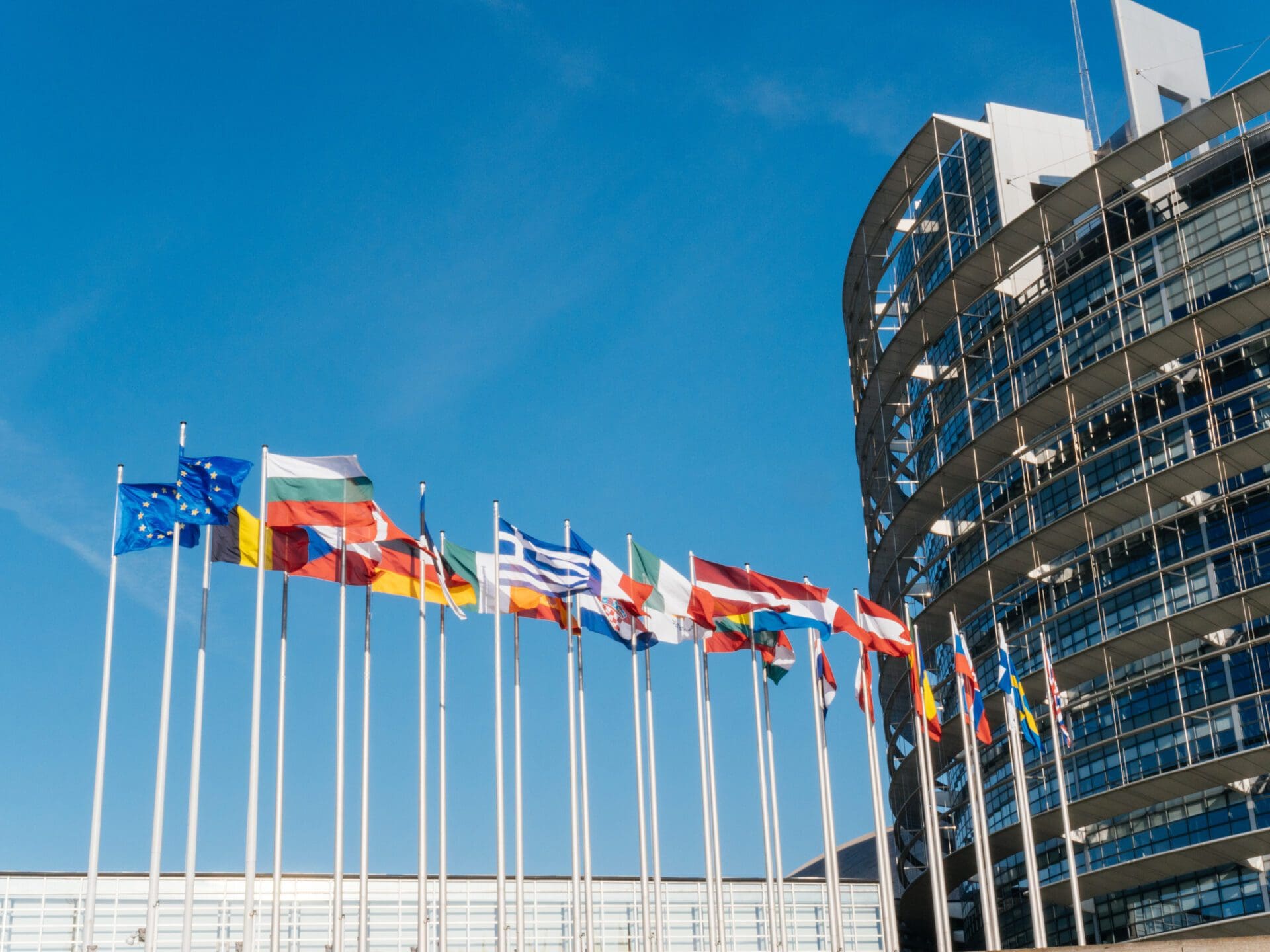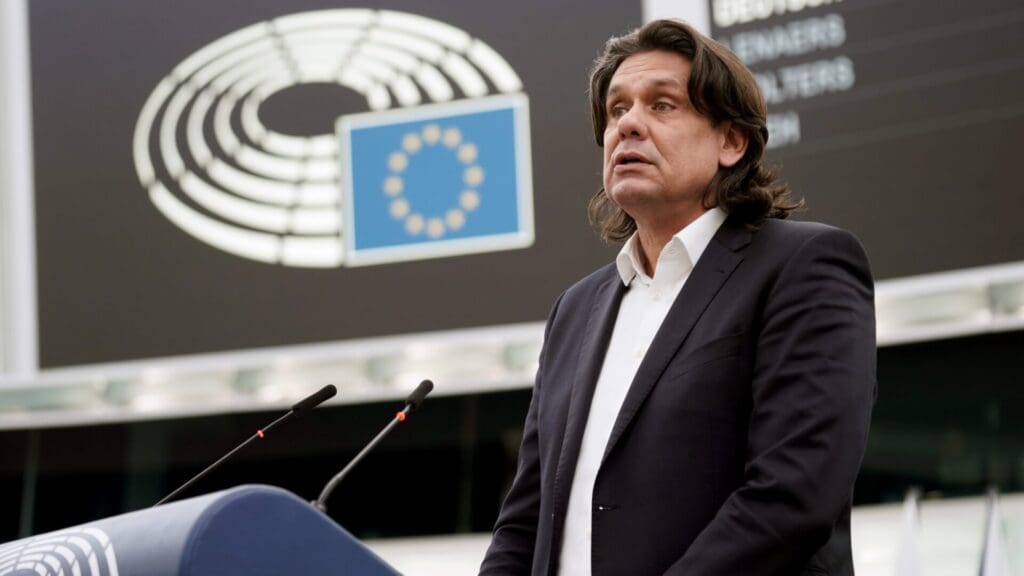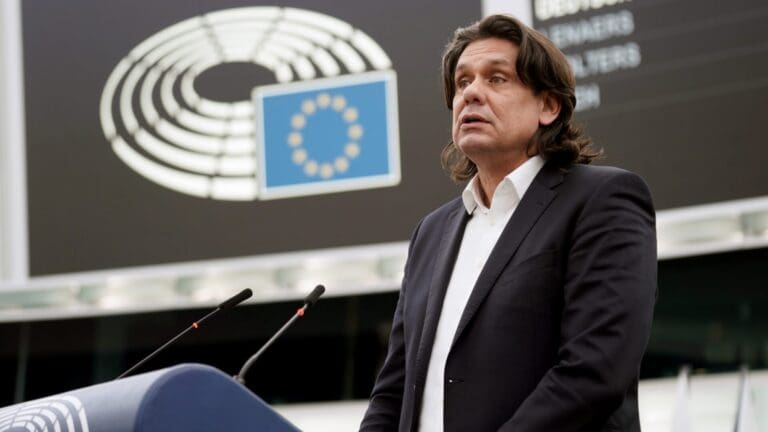Although much of this week’s plenary session of the European Parliament was dominated by left-wing attacks on Hungary, the more observant might have spotted an interesting snippet from a speech by European Commission President Ursula von der Leyen on 17 January. ‘We will also start working our own reforms to prepare for a Union of 30-plus member states,’ said Von der Leyen.
Reforming the European Union’s institutions has long been a topic of discussion in Brussels. With the enlargement of the Balkans and the initiation of accession negotiations with Ukraine and Moldova, the need to transform integration—often dysfunctional in its current form—is becoming increasingly urgent.
‘This House has already put forward bold ideas for a reform of our treaties. Next month, the Commission will set out our ideas in a communication to the European Parliament and the Council, ahead of the leaders’ discussion organised by the Belgian presidency,’ emphasized the Commission President. While it is true that the European Parliament has presented numerous reform proposals in recent years, the most recent being in November of last year with a package of proposals, these reforms seem to favor the left-wing majority in the EP rather than the Member States.
The EP’s proposals would, among other things, marginalize unanimity in the European Council’s decision-making mechanism, advocating for qualified majority voting in several cases.
They would also grant the EP a co-legislative role in the long-term budget. Concerning the position of the President of the European Commission, the nomination process would be altered: the EP would nominate the President, and the Council would then approve him/her—currently, it is the other way around. Overall, the EP’s proposals would significantly increase the powers of the body, with the associated risk, as seen here, that political ideologies might be afforded more room for maneuver than pragmatic cooperation.
Several Western European politicians have already expressed support for ending unanimity in the Council, and these voices have grown stronger since the outbreak of the war in Ukraine. In November of last year, German Foreign Minister Annalena Baerbock called for the abolition of the veto in sensitive areas such as foreign policy. But removing unanimity would eliminate the only means of asserting the interests of smaller member states, placing the Eastern European states at a significant disadvantage compared to the giants of Western Europe.
The Hungarian government also believes that the European Union needs reform, but this stands in stark contrast to the position of the European Parliament.
‘Hungary proposes to abolish the European Parliament in its current form and create a new Parliament consisting of national delegates. This is the only way to ensure a fair, credible, accountable body driven by the interests of the citizens of the European Union,’ wrote Balázs Orbán, the Prime Minister’s Political Director, in his X post. In the summer of 2022, the governing parties adopted a resolution that would grant national parliaments the power to veto EU-level legislation and initiate legislative procedures. ‘European democracy must be led out of the dead end into which the European Parliament has steered it,’ the resolution reads. ‘The European Union must change, because it is unprepared for the challenges of our times.’
Balázs Orbán on Twitter: “Outrageous to see leftist #MEPs abusing their power to blackmail EU institutions. No wonder that in the debate on EU reform, Hungary proposes to abolish the European Parliament in its current form and create a new Parliament consisting of national delegates. This is the only way… pic.twitter.com/NUUdkqMXYQ / Twitter”
Outrageous to see leftist #MEPs abusing their power to blackmail EU institutions. No wonder that in the debate on EU reform, Hungary proposes to abolish the European Parliament in its current form and create a new Parliament consisting of national delegates. This is the only way… pic.twitter.com/NUUdkqMXYQ
Little is known about the Commission’s reform plans at this point, but it is anticipated to be a long and challenging process. According to POLITICO, the Von der Leyen administration is developing a roadmap that would correlate each reform step with an enlargement step. This approach aims to facilitate member states that support enlargement but are hesitant to embrace reforms, making it easier for them to acquiesce. The plan envisions that by the time Ukraine and the Balkans join, the organization would be prepared to manage more than 30 member states.
But organizational reform is not enough; it also needs to find a way to finance its programs and cover the costs of common borrowing. The next Commission president will have to develop the EU’s own resources, an official told POLITICO.
This is especially true when we consider that Ukraine, currently facing a much worse situation than the EU’s poorest member states, is also seeking to join the EU. The war-torn country’s GDP per capita in 2022 was just over $4,500, three times lower than Bulgaria, which had the lowest per capita GDP among member states.
Under the current system, this would imply that almost no member state, other than Ukraine, would receive significant aid from the EU.
Let’s consider for instance agricultural subsidies, most of which are hectare-based. Given that Ukraine is the second-largest country in Europe, its sheer size could put pressure on most of Europe’s family farms. In the realm of cohesion funds, another vital pillar of EU subsidies, Kyiv’s membership would not have a positive impact either. The amount of cohesion funding per region is calculated based on the ratio of GDP per capita to the EU average. Regions receiving support are those where this ratio is less than 75 per cent. Ukraine’s size and underdevelopment would place it well below the average, to the extent that no regions outside Ukraine would benefit from cohesion funding, making all 27 current Member States net contributors.
Related articles:








